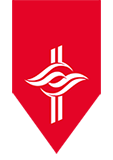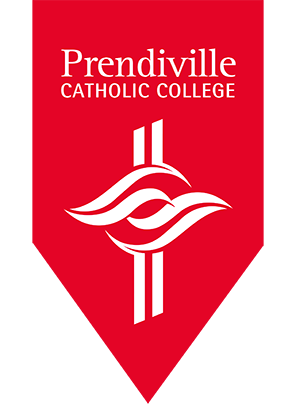- Home »
- Curriculum »
- Year 12 »
- Creative Living »
Creative Living

Creative Living
Year 12
Open the panels below for further details.
Children, Family & the Community (General)
There IS an external examination of this course at this level.
This course caters for students seeking career pathways in areas such as sociology, psychology, education, nursing, occupational therapy, community services, childcare and health.
Content focuses on factors that influence human development and the well-being of individuals, families and communities. Students develop an understanding of the social, cultural, environmental, economic, political and technological factors that impact on the ability of individuals and families to develop skills and lead healthy lives.
Through the study of developmental theories, students develop an understanding of human growth and the domains of development. They develop an appreciation of how the creation of environments that promote optimal growth and development of individuals, families and communities affect and influence society as a whole. Students investigate access to, and availability of, support services and review laws and regulations that govern the provision of such support. They use a range of skills to make informed decisions and consider actions at personal, family and community levels. Students communicate and interact with children, families and community groups in practical ways.
COURSE OUTCOMES
- Exploring human development
- Applying the technology process
- Self- management and interpersonal skills
- Society and support systems
Unit 3 : THE CHANGE FACTOR
This unit focuses on challenges that confront individuals, families and communities in a rapidly developing society and the need to adapt to growing social, cultural, environmental, economic and political circumstances. Students understand the importance of sustainable practices when producing and evaluating resources designed to improve quality of life. They develop an appreciation and understanding of the role of the advocate on national and global issues through participation in an advocacy project.
Students compare, contrast and test developmental theories through observation and participation in practical activities at school or in the community.
Unit 4 : SHAPING THE WORLD
This unit examines the principles of social, economic and political justice and environmental accord. Students investigate ways to address issues that have been created by rapid social, cultural, economic and technological change.
Students explore the characteristics of sustainable communities in Australia and overseas. They consider products, processes, services, systems, structures and relationships that actively support current and future generations’ capacity to create healthy communities.
Students work collaboratively to research and develop strategies to advocate for the needs of specific groups. These strategies are designed to empower and help individuals and communities to manage now and in the future.
Prerequisite: A C grade in Children, Family & the Community (ATAR) in Year 11
Food Science and Technology (General)
The Food Science and Technology General course provides opportunities for students to explore and develop food-related interests and skills. Knowledge of the principles of dietary planning, adapting recipes, and processing techniques, are applied to specific nutritional needs of demographic groups. Occupational safety and health requirements, safe food handling practices, and a variety of processing techniques, are implemented to produce safe, quality food products.
Syllabus: The Year 12 syllabus is divided into two units which are delivered as a pair. The notional time for the pair of units is 110 class contact hours.
Unit 3 – Food Science
This unit explores the societal, lifestyle and economic issues that influence food choice and investigate a range of diet-related health conditions that affect individuals and families.
Using scientific methods, students examine the functional properties that determine the performance of food (food experimenting) and apply these in the planning and preparation of food products and processing systems.
Students develop their expertise with technology and communication skills to implement strategies to design food products and processing systems. Students follow occupational safety and health requirements, implement safe food handling practices and use a variety of foods and processing techniques to produce safe, quality food products.
Unit 4 – The Undercover Story
Students investigate food processing techniques and the principles of food preservation. Students investigate the food supply chain and value-adding techniques applied to food to meet consumer and producer requirements including the nutritional wellbeing of individuals that arise from lifestyle and cultural traditions. They implement principles of dietary planning and adapt recipes and processing techniques when considering specific nutritional needs of demographic groups.
Students apply the technology process to address a product proposal and produce a preserved food product. They justify the equipment, resources and processing techniques used, and evaluate sensory properties. Students show the use of the preserved food product in another food product.
Assessments:
Investigation: 30%
Production: 40%
Response: 15%
Externally Set Task: 15%
Prerequisites: There are no prerequisites however previous success in Year 11 Science Technology (General) is advantageous.
Pathway: This course enables students to connect with further education, training and employment pathways and enhances employability and career opportunities in areas that include nutrition, health, food and beverage manufacturing, food processing, community services, hospitality, and retail.
Certificate II Hospitality
The Certificate II in Hospitality is an excellent introduction into the hospitality industry; students also gain a national qualification where they will learn practical and operational skills to enable them to work in various hospitality settings including restaurants, clubs, pubs cafes and coffee shops. After completing this qualification students can progress to a wide range of qualifications in the hospitality or service industry or gain employment.
This certificate provides a pathway to working in various hospitality settings such as restaurants, hotels, clubs and catering operations.
The course is both practical and theory based with an emphasis on working effectively with others, food hygiene and safety and preparation of dishes. Course participants will engage in a range of hospitality work activities and work under supervisions to complete tasks.
Prerequisite: Successful completion of the Year 11 course.
Course Fee: A student choosing to complete this qualification at Prendiville Catholic College will be charged a subject levy which absorbs the delivery costs of completing the qualification from the RTO (Registered Training Organisation). An approximate levy of $300 per student will be incurred.


